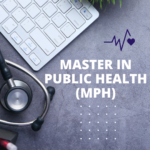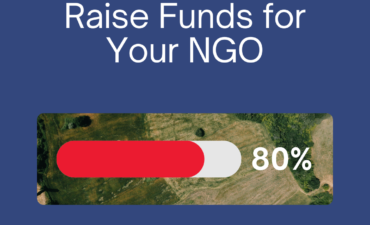Introduction: Master in Public Health (MPH), the field of public health plays a vital role in safeguarding and improving the health and well-being of communities around the world. Master in Public Health (MPH) programs have emerged as a cornerstone of professional development for individuals aspiring to make a significant impact in the public health domain. With a comprehensive focus on disease prevention, health promotion, policy development, and community engagement, an MPH degree equips graduates with the necessary knowledge and skills to address complex public health challenges effectively.
In this article, we provide a comprehensive guide to Masters in Public Health programs, covering essential aspects such as eligibility criteria, the admission process, and the wide-ranging scope of work that awaits MPH graduates. Whether you are a recent graduate considering advanced studies in public health or a seasoned professional seeking to pivot towards a more impactful career, this guide will offer valuable insights into pursuing an MPH degree and navigating the diverse opportunities that this field offers.
From understanding the prerequisites for admission to exploring the various specializations within the MPH curriculum, we aim to equip you with the information necessary to make informed decisions about your academic and professional journey. Additionally, we delve into the potential career paths and roles that MPH graduates can pursue, including opportunities in government agencies, international organizations, healthcare institutions, research, and advocacy.
Master in Public Health (MPH)
As public health challenges continue to evolve in an increasingly interconnected world, the significance of skilled public health professionals becomes ever more critical. By embarking on an MPH program, you are poised to contribute to the greater good, addressing health disparities, promoting preventive strategies, and shaping policies that can transform the well-being of populations on a local, national, and global scale.
Whether your passion lies in disease epidemiology, health education, healthcare management, or policy analysis, the MPH degree equips you with a versatile and adaptable skill set to create lasting positive change. Join us as we navigate through the essential elements of pursuing an MPH, and unlock a world of opportunities to impact public health and promote healthier communities for generations to come.
Who is a Public Health Professional (Master in Public Health (MPH)
A Public Health Professional is an individual who works in the field of public health and is dedicated to safeguarding and promoting the health and well-being of communities and populations. These professionals play a crucial role in addressing various public health challenges and implementing strategies to improve the overall health of society.
Public Health Professionals come from diverse backgrounds and may have different roles and responsibilities based on their education, expertise, and specialization. Some common characteristics of a Public Health Professional include:
- Education and Training: Public Health Professionals typically hold advanced degrees in public health, such as a Master’s in Public Health (MPH) or a Doctorate in Public Health (DrPH). They undergo rigorous training in epidemiology, biostatistics, health policy, environmental health, health promotion, and other relevant disciplines.
- Disease Prevention and Health Promotion: Public Health Professionals focus on preventing diseases and promoting health at the population level. They develop and implement interventions to control the spread of infectious diseases, encourage healthy behaviors, and raise awareness about health issues.
- Community Engagement: Public Health Professionals actively engage with communities to understand their health needs and concerns. They collaborate with local organizations, community leaders, and stakeholders to develop programs that address specific health challenges.
- Epidemiologist: Public Health Professionals use data analysis and research to identify health trends, risk factors, and patterns within populations. They rely on evidence-based practices to design effective interventions and policies.
- Policy Development: Public Health Professionals play a crucial role in advocating for health-related policies at the local, national, and international levels. They work with policymakers and government agencies to influence decisions that impact public health.
- Health Education and Communication: Public Health Professionals communicate health information to the public, providing education on disease prevention, healthy lifestyles, and available healthcare services. They use various channels, including media, to disseminate important health messages.
- Emergency Preparedness and Response: Public Health Professionals are involved in emergency preparedness and response efforts, ensuring that communities are equipped to handle public health crises and natural disasters.
- Environmental Health: Some Public Health Professionals specialize in environmental health, addressing issues related to air and water quality, sanitation, and the impact of environmental factors on public health.
- Global Health: Public Health Professionals working in global health focus on addressing health disparities and promoting health equity on an international scale. They collaborate with international organizations and governments to tackle global health challenges.
- Advocacy and Social Justice: Public Health Professionals often advocate for health equity and social justice, aiming to reduce health disparities and improve the overall well-being of vulnerable populations.
Overall, Public Health Professionals play a critical role in advancing public health goals, making evidence-based decisions, and implementing interventions that lead to healthier and more resilient communities. They work tirelessly to improve health outcomes and create a positive impact on society’s well-being.
Importance of Master in Public Health (MPH) Degree
Dive into the world of possibilities with a Master’s in Public Health (MPH) degree. The MPH offers a comprehensive understanding of public health principles, preparing graduates for versatile careers in government, non-profits, research, and more. Armed with evidence-based practices, leadership skills, and a global health perspective, MPH graduates become advocates for health equity, shaping policies, and addressing complex public health challenges.
Join the ranks of empowered professionals making a lasting impact on communities and promoting a healthier future for all. Whether you’re driven by research, leadership, or community engagement, the MPH degree opens doors to a fulfilling and rewarding public health journey.
Step into the world of public health with an MPH degree, the gateway to diverse career opportunities and impactful change. Gain a multidisciplinary understanding of epidemiology, health policy, and environmental health, equipped with the skills to lead and manage health initiatives. From advocating for health equity to collaborating on global health challenges, MPH graduates make data-driven decisions and influence policies that shape the well-being of communities.
Become a catalyst for positive transformation, empowering individuals and societies to embrace healthier lifestyles and thriving futures. Embrace the challenge, and embark on a rewarding journey to revolutionize public health and leave an enduring mark on the well-being of people around the world.
Top Wealthiest Charity Organizations Worldwide>>>>>READ NOW
Eligibility Criteria Master in Public Health (MPH) Program
Eligibility criteria for Master’s in Public Health (MPH) programs can vary among different universities and institutions. However, there are some common requirements that most MPH programs typically seek in applicants:
Bachelor’s Degree
The most common requirement for an MPH degree is a bachelor’s degree in a related field, such as biology, health science, or sociology. However, some programs may also accept applicants with a bachelor’s degree in a non-related field, as long as they have taken certain prerequisite courses.
In my personal experience a Bachelors Degree in any field combined with a work experience anywhere between 2 years to 5 years in the Public Health field or Social Development will give you an added advantage.
If you are a Medical degree holder doctor (MBBS) than you don’t require work experience.
Prerequisite Courses
In addition to a bachelor’s degree, some MPH programs may require applicants to have taken certain prerequisite courses. These courses may include:
- Biology
- Chemistry
- Mathematics
- Statistics
- Epidemiology
- Biostatistics
- Health Policy
- Environmental Health
Work Experience
Some MPH programs may also require applicants to have work experience in public health. This experience can be gained through internships, volunteer work, or paid employment.
GRE or MCAT
For International MPH programs may require applicants to take the GRE or MCAT. The GRE is a standardized test that is used to assess applicants’ academic abilities. The MCAT is a standardized test that is used to assess applicants’ readiness for medical school.
Other Requirements
In addition to the above requirements, some MPH programs may also have other requirements, such as a minimum GPA or a personal statement. It is important to check the specific requirements for each program that you are interested in.
Here are some additional tips for increasing your chances of getting accepted to an MPH program:
- Take the GRE or MCAT early:This will give you time to review your scores and retake the test if necessary.
- Get strong letters of recommendation:Ask professors, employers, or other professionals who know you well to write letters of recommendation for you.
- Write a strong personal statement:Your personal statement should explain why you are interested in public health and why you are a good fit for the program.
- Get involved in public health activities:Volunteering or interning in a public health setting can help you gain experience and learn more about the field.
Tuition and Scholarship support for Master’s in public health (MPH) program
Of course there is scholarship available for MPH programs; many universities already have sorted foundations and angel donors to compliment your admission with monetary support. You have to simultaneously apply for university admission and scholarship.
Examples of Funders are listed below.
- Foundations:There are many foundations that offer scholarships to students pursuing MPH degrees, such as the American Public Health Association (APHA) Foundation and the Robert Wood Johnson Foundation.
- Government Grants:The U.S. government offers a number of grants to help students pay for graduate school, including the Health Resources and Services Administration (HRSA) Scholarship Program and the Centers for Disease Control and Prevention (CDC) Epidemic Intelligence Service (EIS) Program.
- Universities:Many universities offer scholarships to their own students, either through merit-based or need-based criteria.
- Employers:Some employers offer tuition reimbursement programs to their employees, which can help offset the cost of an MPH degree.
- Loans:If you are unable to find other sources of funding, you may need to take out student loans to pay for your MPH degree.
It is important to note that the amount of tuition and scholarship support available varies depending on the program and the applicant’s individual circumstances. It is a good idea to start your research early and apply for as many scholarships as possible.
Here are some additional tips for finding tuition and scholarship support for an MPH degree:
- Contact the admissions office of the program you are interested in:They will be able to tell you about scholarships that are specifically offered through their school.
- Search online:There are many websites that list scholarships for MPH students, such as the APHA Foundation’s Scholarship Finder and the CDC’s EIS Scholarship Program website.
- Talk to your professors:They may know of scholarships that are not widely advertised.
- Network with other MPH students:They may be able to share information about scholarships that they have found.
Students must check online or with the registrar of the University for the Sorted List of Scholarship aid available for the degree program.
Scope and Salary of Master’s in Public health program
The scope and salary of a Master of Public Health (MPH) degree vary depending on the specialization and the level of experience. However, MPH graduates are in high demand, and they can earn a good salary in a variety of settings.
Some of the most common job titles for MPH graduates include:
- Epidemiologist:Epidemiologists study the causes and spread of diseases. They work in a variety of settings, including government agencies, healthcare organizations, and non-profit organizations. The median annual salary for epidemiologists is $75,330.
- Health Educator:Health educators promote healthy lifestyles and behaviors. They work in a variety of settings, including schools, hospitals, and community health centers. The median annual salary for health educators is $57,230.
- Health Policy Analyst:Health policy analysts develop and evaluate public health policies. They work in government agencies, healthcare organizations, and non-profit organizations. The median annual salary for health policy analysts is $73,150.
- Public Health Manager:Public health managers oversee the implementation of public health programs. They work in government agencies, healthcare organizations, and non-profit organizations. The median annual salary for public health managers is $84,230.
The salary for an MPH graduate can also vary depending on the level of experience. Entry-level MPH graduates typically earn a salary of around $50,000. However, with experience, MPH graduates can earn a salary of over $100,000.
The scope of work for an MPH graduate also varies depending on the specialization. For example, epidemiologists may work on projects to track the spread of diseases, while health educators may develop programs to promote healthy lifestyles. However, all MPH graduates have the opportunity to make a real difference in the world by working to improve the health of populations.
Here are some of the industries that hire MPH graduates:
- Government:Federal, state, and local governments all employ MPH graduates to work on public health issues.
- Healthcare:Hospitals, clinics, and other healthcare organizations employ MPH graduates to work in a variety of roles, such as epidemiology, health promotion, and health policy.
- Non-profit organizations:Non-profit organizations that work on public health issues, such as the American Red Cross and the Centers for Disease Control and Prevention, also employ MPH graduates.
- Private industry:Some private companies also employ MPH graduates to work on public health issues, such as pharmaceutical companies and health insurance companies.
If you are interested in a career in public health, an MPH degree can be a great way to get started. With an MPH degree, you will have the skills and knowledge you need to make a real difference in the world.
Universities & Institutes Offering Master’s In Public Health (MPH) Program
List of top institutes in India offering Master’s in Public Health (MPH) program
| Name of Institute | City | Official Website | Approximate Total Fees (INR) |
| IIHMR | Jaipur | https://iihmr.edu.in/ |
6 lakh |
| TATA institute of social sciences (TISS) | Mumbai | www.tiss.edu |
1 lakh |
| Public Health Foundation of India (PHFI) | Delhi | https://phfi.org/iiph-delhi/ | 4 lakh |
| Institute of Clinical Research India (ICRI) Dehradun | Dehradun (Uttarakhand) | https://www.icriindia.com |
– |
| Manipal University | Manipal | https://manipal.edu/mu.html | 2.65 lakh |
| University of Lucknow | Lucknow | http://www.lkouniv.ac.in/ | 4 lakh |
| Jawaharlal Nehru University, New Delhi | Delhi | https://www.jnu.ac.in/ | 20000 |
| University of Hyderabad | Hyderabad | https://www.uohyd.ac.in/ | 20000 |
| Amity University | Noida | https://amity.edu/gurugram/ | 2 lakh |
| Rabindranath Tagore University (AISECT) | Bhopal | https://rntu.ac.in/ | – |
| Punjab University | Chandigarh | http://puchd.ac.in/ |
12000 |
| Indian School of Technology and Management | Mumbai | www.istm.org.in | 56000 |
| Indian Institute of Public Health (PHFI) | Hyderabad | https://phfi.org/?option=com_content&view= |
2.25 lakh |
| Shri Guru ram Rai Institute of Technology | Dehradun (Uttarakhand) | http://www.sgrru.ac.in | 2,90000 |
We have compiled a list of the best institutes for public health programs. However, the tuition fees are subject to the discretion of the institute, so please check with the institute directly before applying.
WEBSITE Link to Bill & Melinda Gates Foundation>>>>>Check Out Now
Master in Public Health (MPH)
List of top International Institutes offering Master in Public Health (MPH) program
| Name of Institute | Country | Official Website |
| KIT Royal Tropical Institute | Netherland | https://www.kit.nl/ |
| Yale University | United States | https://publichealth.yale.edu/ |
| University of Waterloo | Canada
|
https://uwaterloo.ca/ |
| University of Alberta | Canada | https://www.ualberta.ca/ |
| Georgia Southern University
|
United States
|
https://cogs.georgiasouthern.edu/admission/ |
| Benedictine University | United States
|
http://www.ben.edu/college-of-education-and-health-services/public-health/index.cfm |
| University of Liver pool | United Kingdom | https://www.liverpool.ac.uk/study/ |
| Barry University | United States | https://www.barry.edu/health-management/dual-ms/about/ |
| The University of Queensland | Australia
|
https://my.uq.edu.au/programs-courses/program.html?acad_prog=5224 |
| Brown University | United States | https://www.brown.edu/ |
| Concordia University College of Alberta | United Kingdom | https://concordia.ab.ca/science/ |
| Arcadia University | United States
|
https://www.arcadia.edu/academics/ |
| Lake head University | Canada
|
https://www.lakeheadu.ca/programs/ |
| University of Sheffield | United Kingdom
|
https://www.sheffield.ac.uk/scharr/ |
| The University of Auckland | New Zealand
|
https://www.auckland.ac.nz/en/ |
| The University of Otago | United States | https://www.otago.ac.nz/study-public-health/ |
| University of Sydney | Australia | https://sydney.edu.au/courses/courses/ |
| Cardiff University | United Kingdom | https://www.cardiff.ac.uk/study/ |
| Howard University | United States | https://gs.howard.edu/graduate-programs/public-health |
Majority of above mentioned institutes, university and colleges have tie ups with the Master funding program which provide scholarship for the MPH degree to well deserving and foreign candidates.
Please search the universities websites for the course funding request link and how to apply section.
Prior to admission one could possibly do an e-mail correspondence with the university and they will be more than happy to help regarding the course fee, admission process, scholarship available, concessions and other similar FAQs.
On a Closing Note: Choosing the right Master of Public Health (MPH) program is an important decision. There are many factors to consider, such as the program’s curriculum, faculty, reputation, cost, location, and availability of scholarships.
The most important factor is the program’s curriculum. The curriculum should be relevant to your career goals and should provide you with the skills and knowledge you need to succeed in public health. The faculty should be experts in the field and should be able to provide you with high-quality instruction. The program’s reputation is also important. You want to attend a program that is well-respected and that will give you a competitive edge in the job market.
Other factors to consider include the cost of tuition, location, and availability of scholarships. MPH programs can be expensive, so you need to factor in the cost of tuition, fees, and living expenses. The location of the program is also important. If you want to work in a particular city or state, you may want to choose a program that is located there. Scholarships can help you offset the cost of tuition, so you should apply for as many as you can.
Once you have considered all of these factors, you can start to narrow down your choices. It is a good idea to visit the campuses of the programs you are interested in to get a feel for the school and the program. You should also talk to the faculty and current students to get their insights.
Choosing the right MPH program is an important decision, but it does not have to be difficult. By carefully considering your needs and goals, you can find a program that is the perfect fit for you.
Our information bears no cost (it’s absolutely FREE), don’t let valuable information slip away.
Join our community of avid readers who are always in the know. Subscribe to our website; stay connected and engaged with the latest news, trends, and developments by subscribing today.
(PUSH the bell ICON)
Leverage the power of knowledge to propel your organization to new heights. Don’t miss out – explore our content
- Latest Funds for NGOs,
- NGO Jobs
- Resources (Helpful Guides and Courses)
- Premium Resources
- NGO related articles
Empowering Humanity through Funds, Resources and Collective Action
Sharing is Appreciated









